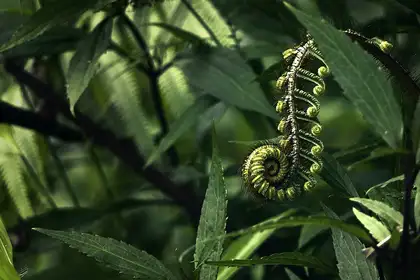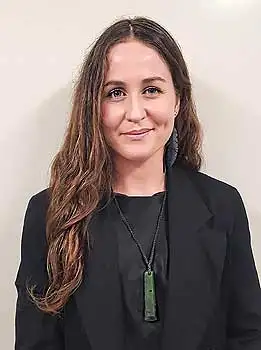
The Mātauranga Kai research project aims to gather pūrākau (stories) about kai from knowledge holders who grew up in provincial towns in Te Tai Tokerau, Taranaki, Tairawhiti and Te Tauihu rohe (regions).
Dr Nikki Renall, Taranaki, has been awarded nearly $350,000 to partner with Māori communities to explore new ways to inspire Māori rangatahi (youth) and pakeke (adults) about healthier and more sustainable ways of eating that can reconnect them back to whenua (land) and Te Ao Māori (traditional Māori world).
The Māori Health Research Postdoctoral Fellowship grant is from the latest Health Research Council of New Zealand funding round, announced today.
The collaborative research project, entitled Mātauranga Kai, aims to gather pūrākau (stories) about kai from knowledge holders who grew up in provincial towns in Te Tai Tokerau, Taranaki, Tairawhiti and Te Tauihu rohe (regions).
Dr Renall, a Registered Dietitian who graduated with her PhD earlier this year, says the project will record important narratives on kai of kaumātua (elders) and traditional knowledge holders, which will be a taonga (treasure) for younger generations.
“The narratives can be used to develop innovative and inspiring resources for nutrition-related health promotion for Māori and provide culturally relevant guidance for health professionals and dietitians to promote better health outcomes for Māori.
“This research project also has the potential to advance knowledge in the field of nutrition by drawing on other world views of wellbeing and the connection between food, health, and our environment.”

Dr Nikki Renall.
The project will provide essential evaluation evidence of the impact of the Wakatū whānau-led pilot project, that could highlight new approaches for relevant agencies to support and empower whānau and Māori communities to achieve improved oranga in contemporary times, which could contribute to healthier and more resilient communities.
Supported by a Māori research advisory group, the Kaupapa Māori research has five phases:
- Establish relationships with Māori communities;
- Document the mātauranga contained in historical archival materials and academic writings relating to traditional foods and oranga (a holistic concept of wellbeing encompassing physical, spiritual, mental, environmental, and social wellbeing);
- Conduct interviews with whānau, hapū, and Iwi members about their knowledge and experiences of mātauranga relating to kai;
- Evaluate the wellbeing impact of a Wakatū whānau-led pilot project utilising mātauranga and tikanga (customary)-led practices to grow traditional kai on their whenua and;
- Develop a nutrition-related health promotion framework to support oranga for Māori in contemporary times based on traditional mātauranga and values around kai.
“I aim to become a more well-rounded nutrition researcher to lead more impactful nutrition-research that addresses the health inequities of today leading to health equity in the future,” Dr Renall says.
“This experience will enable me to develop my capacity as a Māori researcher in a culturally appropriate and safe way. The specialist expertise that the collective research team brings to this project will ensure that I am supported to conduct this research safely with Māori for Māori and honour the principles of Te Tiriti o Waitangi whilst ensuring the protection of mātauranga Māori.
“The Hohua Tutengaehe Postdoctoral Fellowship has given me the opportunity to work with and learn from a diverse group of strong wāhine Māori who I admire, and who contribute to the development of Māori health research that is consistent with tikanga Māori,” she adds.
Dr Renall will lead the research which will be hosted at Massey’s Research Centre of Hauora and Health, with the support of:
- Associate Professor Lisa Te Morenga, Ngāti Whātua Ōrākei, Te Uri o Hua, Ngāpuhi, Te Rarawa, Principal Investigator at the Riddet Institute and a Rutherford Discovery Fellow;
- Dr Marg Wilkie, Ngāti Porou, Ngāpuhi, a Kairangahau Kaupapa Māori (Senior Researcher) from Massey University’s Research Centre of Hauora and Health and;
- Dr Tracy Perry, Ngāti Porou, Ngāti Uepohatu, Waikato, Ngāti Wairere, a New Zealand Registered Dietitian from the University of Otago.
Ms Miriana Stephens, Ngāti Rarua, Ngāiterangi, Ngāti Ranginui, General Manager for AuOra/Wakatū Incorporation and Dr Meika Foster, Te Ātiawa, Ngāti Mutunga, a New Zealand Registered Dietitian and director of Edible Research Ltd are part of the Māori research advisory group guiding this project, notably supporting this research with their expertise around cultural and intellectual property rights, and the protection of mātauranga Māori.